
Art Carden
Associate Professor of Economics
Samford University
Art Carden is an Associate Professor of Economics at Samford University in Birmingham, Alabama. In addition, he is a Senior Research Fellow with the Institute for Faith, Work, and Economics, a Research Fellow with the Independent Institute, a Senior Fellow with the Beacon Center of Tennessee, and a member of the Adjunct Faculty of the Ludwig von Mises Institute. He was a Visiting Research Fellow at the American Institute for Economic Research in 2008, 2009, and 2011 and he has had the honor of teaching in summer programs sponsored by the Institute for Humane Studies and the Ludwig von Mises Institute. He contributes regular commentaries to Forbes.com and the Washington Examiner.
His research has appeared in journals like the Journal of Urban Economics, Public Choice, Contemporary Economic Policy, and Business and Politics, and his commentaries have appeared on Mises.org, USNews.com, and ForeignPolicy.com as well as in newspapers like the Tennessean, the Birmingham News, the Memphis Commercial Appeal, the Los Angeles Business Journal, the Orlando Business Journal, and numerous other outlets. Before joining the faculty at Samford, he taught economics at Rhodes College in Memphis and earned his PhD in Economics from Washington University in St. Louis.
Blog Posts

This Christmas, blame supply and demand for your expensive gifts
December 13, 2023
|Basic Economics
“Why do they make the prices so high for toys?” “Who is they, sweetheart?” It was an interesting conversation on our way out of the Walmart parking lot. My six-year-old had decided to eschew a toy purchase so that she could save for an eventual trip to the Bahamas. She was expressing a common fallacy: there is someone out there responsible for high prices. Perhaps it’s a cabal of villains rubbing their hands at the thought of over-charging us, whatever that means, for food, clothing, shelter, toys, and so on. Her frustration is misplaced. “They” don’t set prices. “They”

F.A. Hayek accomplished several careers’ worth of economic achievements in one lifetime
May 8, 2023
|Economics
F.A. Hayek would have celebrated his 124th birthday today. When he passed away in 1992, he left behind a prodigious body of work on several discrete issues. Hayek was the 20th century’s most prominent developer of the Austrian business cycle theory. He extended Mises’s argument about the impossibility of economic calculation under socialism in his classic essay “The Use of Knowledge in Society” and in the papers that were collected into Individualism and Economic Order in 1948. As a student, he developed the basis of a cognitive theory, which he revised and published in 1952 in The

5 ways market competition can reduce global poverty
October 17, 2022
|Poverty & Inequality
If we are serious about reducing global poverty, then we must have a serious conversation about market access through sharp reductions in barriers to free trade in labor, capital, goods, and services. Here are a few suggestions that would likely make a sizable dent in the share of the world’s population living in poverty: 1. Competition in the market for schooling Schooling is one of the first things that comes to mind when people think of goods that provide spillover benefits and for which there is at least a plausible case for government involvement. As Newcastle University’s

The timber industry illustrates exactly what's wrong with international trade restrictions.
September 28, 2017
|Free Markets and Capitalism
In the August 4 issue of the Wall Street Journal, the CEO of a US lumber company claimed that “our trade laws exist to protect American businesses and jobs from unfair foreign trade practices, allowing our industries to grow and prosper.” His concern for American businesses and workers is commendable, but trade laws restricting our ability to do business with foreigners — even foreigners whose governments subsidize exporters — cause some industries to “grow and prosper” by causing other industries to shrink and struggle. Let’s think about international trade restrictions on the

Most benefits of eating local are wildly exaggerated, and this is why
September 7, 2017
|Economics
It’s taken a long time, but I think I’m finally breaking out of the student mentality where all calories are perfect substitutes for one another and “fried” is synonymous with “edible.” I have the refined tastes of a toddler, but with my wife’s help, I’m learning to enjoy and appreciate food. I’ve also explored issues such as the benefits of eating local.To that end, I’ve recently read Tyler Cowen’s An Economist Gets Lunch, Ben Goldacre’s Bad Science, and Pierre Desrochers and Hiroko Shimizu’s The Locavore’s Dilemma: In Praise of the 10,000 Mile Diet.What do these books

Diary of a stupid jerk: why we need free speech on campus
August 21, 2017
|Uncategorized
Want a depressing read? Try Unlearning Liberty: Campus Censorship and the End of American Debate by Greg Lukianoff of the Foundation for Individual Rights in Education (FIRE). FIRE is an interesting organization: it appeals, obviously, to libertarians like me who are concerned with speech codes, their chilling effects on debate, and the potential for opinions like mine to be marginalized.But this book is no partisan diatribe. Lukianoff is a self-described secular, liberal atheist, and he documents story after story of students and faculty being made to pass through an administrative gauntlet because

What is “risk preference,” you ask? Consider the waffle…
August 11, 2017
|Uncategorized
I had just finished a waffle and scrambled eggs, and my five-year-old’s unfinished waffle was sitting on his plate.It looked…delicious. I was sure that it would taste delicious, too. Every week, he decides to save about half of his waffle for later, but I knew that with enough cajoling, I could probably convince him to give me the rest.This would have been a bad idea for two reasons. First, there’s the extra calorie count I’d be bringing upon myself by eating another half-waffle. It would be delicious, yes, but not consistent with my long-run health and wellness goals.Second, my kids have

How capitalists can create value by reducing waste
July 31, 2017
|Environmentalism
It has always bothered me to go to a sporting event or get on a plane and see lots of empty seats. The marginal cost of an additional spectator or passenger is basically zero; anything additional someone would pay to the airline or stadium for the privilege of attending or flying would be pure profit. Isn’t there a way those seats could be filled by people who would place more than zero value on the experience?Like most academics, I simply lament this reality and go on with my life. Fortunately, some people and firms are actually doing something about it. People are earning tidy livings by

Innovation in healthcare could be dangerous, but the alternative is worse.
July 26, 2017
|Healthcare
While the politicians debate healthcare reform (again), let’s take a moment to consider how the basic flaws in our current system of “health insurance” put someone important at risk last week. That someone was me. I felt sluggish for a while, and I said to my wife that I felt like I had a jellyfish lodged in my chest. She suggested it might be walking pneumonia. That seemed to make sense, so I spent some time on the Internet looking up that ailment, including its symptoms. Regulation is responsible for the enormous gap between the expert and the amateur.I got to thinking about how

Why I deserve what you created: word count welfare
June 16, 2017
|Poverty & Inequality
I am furious. I was scrolling through my Facebook feed this week and learned that my friend Steve Horwitz had written almost 3,000 words in a single day in his new book chapter on inequality. For perspective, that’s about 12 pages, double-spaced. So of course I’m enraged! My word count for the day was … zero. In what world is it fair that Steve Horwitz could write 3,000 words in one day while I wrote none? After all, I have a lot of very good reasons for having not gotten anything written that day. I went to the gym, and then after I got to the office I spent the entire morning discussing

Government surveillance and academic thought policing are taking us to 1984.
June 8, 2017
|Uncategorized
There are some books you should read only once, and others you should reread occasionally. George Orwell’s 1984 is one you should read repeatedly and deeply. Without it, no education is complete. It tells the story of a man, Winston, grappling with ordinary desires for love and privacy — but in a totalitarian socialist world in which every word and even desire is subject to control and punishment by “the Party.” 1984 teaches timeless truths and shows its characters grappling with questions that do not have easy answers."] 1984 teaches timeless truths and shows its characters grappling with

Do you have a license to mow that lawn? 5 ways occupational licensing laws hurt (almost) everyone
June 3, 2017
|Uncategorized
Occupational licensing is crippling the labor market. One of the worst examples I've seen comes from Gardendale, Alabama. Local news station ABC3340 reports that a lawn service threatened to report a teenager to the city because a city ordinance requires everyone who wants to do business in Gardendale to have a business license. As the ordinance is written, this apparently includes lawn-mowing teenagers. Now, Gardendale is my wife's hometown, where my grandmother and in-laws live, and where I can be found at the Cracker Barrel just off Fieldstown Road on the occasional Saturday. So this story

Best Selling Computer Game of All Time Teaches… Economics, Entrepreneurship, and Cooperation?
May 17, 2017
|Free Markets and Capitalism
As part of our homeschooling curriculum, our kids spend an enormous amount of time designing complex circuits and structures using a state-of-the-art computer program. They also spend a lot of time communicating with others and finding online resources that can help them when they need to solve a problem. Doesn’t that sound better than “our kids play Minecraft a lot?” Minecraft is the best-selling computer game of all time, and since its launch way back in May of 2009, it has been fascinating to see how “Minecraft culture” has evolved. It has unleashed a host of YouTube entrepreneurs

Confront, slander, reject: The anti-intellectual legacy of Karl Marx
May 5, 2017
|Economics
Today marks the birthday of probably the most influential social scientist of the last two centuries, Karl Marx. Enormous amounts of ink, digital and actual, have been spilled interpreting Marx, reinterpreting Marx, exegeting Marx, applying Marx, criticizing Marx, refuting Marx, praising Marx, and burying Marx. The current campus debates about free speech suggest that we should consider Marx’s practical, intellectual, and political legacy. Scholars working in the classical liberal tradition are no strangers to calumnies and occasional slanders as arguments are met with a sneering “who funded

Stop toxic partisan posts: Take the social media pledge.
March 21, 2017
|Democracy and Voting
In the months leading up to the 2008 presidential election, social media was still kind of in its infancy. I was new to Facebook, I wasn’t yet on Twitter, and I didn’t have a YouTube channel. I’d never heard of Reddit. That has changed massively since then, and social media toxicity is the topic du jour among the chattering class. It raises an interesting problem. Some of what gets shared on social media as part of an election cycle is thoughtful and substantive. More of it, though, is either tribal drum-beating or outright partisan bleating. I fear that this will get worse in the 2018 midterm

Turn off the rage machine: Stop reading the news
March 9, 2017
|Education
Have you ever looked through your social media feeds and come away thinking, “Wow, I’m really glad I did that. I’m refreshed, renewed, and totally not enraged at all”? Me neither. The same goes for news more generally. I’ve read several things that have convinced me to (mostly) give up on current events: a blog post by Bryan Caplan (in which he refers readers to Rolf Dobelli’s “Avoid News,”), Dobelli’s book The Art of Thinking Clearly, and Tim Ferriss’s book The Four-Hour Workweek are among them. Caplan and Dobelli argue that news is to the mind as candy is to the body. Like

The economics within Star Wars: The Force Awakens
October 30, 2016
|Basic Economics
We meet Rey, the heroine of Star Wars: The Force Awakens, when she is scavenging for parts from a wrecked star destroyer. She isn’t making anything, per se, but she’s creating value by identifying resources in low-value uses and moving them to higher-value uses. In doing so, she’s giving us an important lesson in industrial policy. American policymakers are obsessed with the manufacturing sector. “While too many politicians and experts in Washington gave up on American manufacturing, Hillary never did,” says her campaign website. “We will put our coal miners and steel workers

The best person to plan your next flight is you
October 24, 2016
|Basic Economics
It was a bright and sunny Thursday when I made arrangements for a trip from Birmingham to Washington, DC. I elected to buy a flight that connects through Atlanta on Delta Airlines over a direct flight on American Airlines that would be $13 cheaper. In fact, I booked and then canceled the American flight after thinking about it for a few minutes (thank God for Travelocity’s refund policy). What madness is this? What could possibly possess me, an otherwise rational individual, to pay more for an obviously inferior flight? After all, it isn’t like spending half the day in the airport is most people’s

France’s burkini ban fights Islamic oppression with secular oppression
October 21, 2016
|Civil Liberties
It’s an intriguing problem: going to the beach is fun, but the fact that swimsuits are generally pretty revealing is a problem for Muslim women who are literally covered from head to toe as a matter of religious tradition and devotion. Enter the burkini, beachwear that covers the body from head to toe like a burka but which can be worn to the beach and in the water. The burkini’s creator is an Australian named Aheda Zanetti who wanted “to allow Muslim women to participate in the Australian beach lifestyle,” and the BBC reports that, according to Zanetti, her online burkini sales have risen

Yes, there's an Envelope Lobby, and they're more powerful than you might think
October 18, 2016
|Lobbying & Special Interests
Writing for the Washington Examiner, Tim Carney records the emergence of “a new quirky-sounding consumer-rights group” called “Consumers for Paper Options.” Recently, when mutual funds asked for relief from requirements that they mail physical copies of prospectuses, they were repelled by the raw and dedicated power of Consumers for Paper Options. At first glance, this looks like a counterexample to the “concentrated benefits, diffuse costs” logic of public choice economics. After all, it’s an organization of consumers who simply want to keep getting paper copies of their mutual fund

Tired of expensive football tickets? Blame yourself
October 10, 2016
|Basic Economics
Editor's Note: Art Carden wrote this article in August, back when the Samford Bulldogs still had a chance at the championship. It’s the end of summer, which can only mean one thing: college football is in the air! And with the start of college football season, students and alumnae will pay handsomely for the privilege of cheering on their favorite teams. Members of the general public who ordered tickets from the University of Alabama to attend Alabama vs. Kentucky paid a minimum of $78 per ticket. In a stadium that seats almost 102,000 people, this suggests revenue of almost $8 million for the

Elon Musk is no capitalist hero, but he’s no Bond villain either
October 9, 2016
|Free Markets and Capitalism
This might not be an original assertion among the hoodie’d tech-bros of Silicon Valley who venerate him or the venture capitalists who have grown fat off his enterprise, but it has to be said: My favorite billionaire is Elon Musk. The 45-year-old South African visionary’s list of achievements is inspiring (see: SpaceX and Tesla), but his yet unachieved list of goals is a study in breathtaking madness. High-speed “hyperloop” transit? We should see a test track for the hyperloop by 2018. Cheap, efficient, and storable solar energy? Musk has a plan to create house roofs made entirely of solar
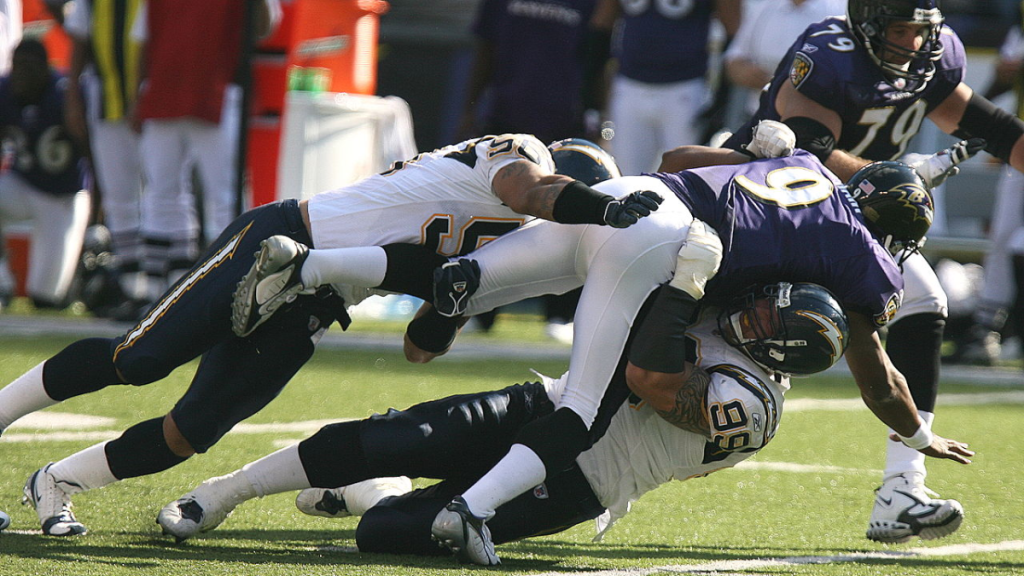
To Reduce Concussions in the NFL, Reduce the Amount of Equipment
October 4, 2016
|Basic Economics
Fall is here, which means it is time for fans to observe sacred weekend rituals of watching armored behemoths destroy themselves and one another on the football field while gorging themselves on creative and delicious combinations of sugar, fat, salt, and alcohol. While you crack open beer number four and help yourself to another serving of extra-zesty chili cheese dip, you might pause for a second and wonder about the rationality of doing something as risky and self-destructive as playing football. It gnaws at your conscience: couldn't we—shouldn't we—make this game safer? Would we improve

What Economists Mean When They Say People Act "Rationally"
September 23, 2016
|Basic Economics
“But people aren’t rational the way economics assumes.” Perhaps you’ve heard that levied as an objection to the use of economics. It’s a fair objection: I’ve often said that virtually any multidisciplinary conversation involving an economist is bound to devolve into a debate about the rationality assumption. Limits to the homo economicus version of rationality are also limits to the explanatory power of some aspects of introductory-level economics. They do not, however, compromise the case for laissez-faire. If anything, they strengthen it. The crucial non-sequitur in arguments for

Despicable Me’s Gru Is an Example of the Entrepreneur No One Wants to Have Around
September 16, 2016
|Basic Economics
Entrepreneurs have beliefs about the world in its current state, a vision of how the world could be, and a plan to get from the former to the latter. They do great work when they have incentives to produce goods and services that people like. But when those incentive aren’t there, they become unproductive entrepreneurs—using their creativity to make life worse for others One of the great things about a commercial society is that it can channel our most vicious impulses of greed into the service to others. What Markets Do to People You have probably heard some people criticize high-level executives

The Unspoken Truth About Government Policies That Are Supposed to Help People
September 15, 2016
|Basic Economics
It’s surprising how frequently people want to “fix” prices because they aren’t aesthetically pleasing. Activists around the country are urging us to “#FightFor15,” meaning “fight for a $15 per hour federal minimum wage. Birmingham leaders want a higher minimum wage. Seattle recently implemented a minimum wage increase and, to their credit, commissioned a team of scholars to evaluate the policy carefully. Some activists in California herald the success of their push for a $15 per hour minimum wage and others are renewing calls for rent control in Silicon Valley. No one can

Nintendo's Rebooted NES Console a Nostalgic Reminder of Our Economic Progress
September 8, 2016
|Basic Economics
On the heels of the phenomenally successful Pokémon Go, Nintendo has announced that it’s going to release a new console, the Nintendo Classic. The $60 console (you can get a second controller for another $10) will look like the original eight-bit Nintendo Entertainment System and a controller, and it comes loaded with 30 classic Nintendo games—including the Super Mario Bros. games, the Legend of Zelda, Zelda II, and Punch-Out!!. Suffice it to say we plan to preorder. It’s worth mentioning that no one in our family has ever been a big gamer. As far as I can tell, video games peaked with Super

Here’s Who I’m Blaming for Hamilton’s Exorbitant Ticket Prices
August 16, 2016
|Basic Economics
My wife and I are going to celebrate her birthday by spending a couple of days in New York. After learning how high ticket prices are (even after the departure of the show’s lead actor) and seeing the usual contempt ladled upon resellers, though, we won't be seeing Hamilton. It's like clockwork. There's a major event or concert or play or whatever. The price is set below that which will equate quantity supplied with quantity demanded. So a secondary market develops where the people who originally bought the tickets resell them for a much higher price. That prompts those without tickets to howl

FBI’s Exoneration of Clinton Illustrates Danger of “Two Americas”
August 14, 2016
|Role of Government
Many people are shocked that Hillary Clinton’s “extreme carelessness” has not been prosecuted for “gross negligence.” It’s led a lot of commentators to conclude that there is one set of rules for the political elites and another set of rules for everyone else. A spate of high-profile police shootings in which black men and women have lost their lives has Black Lives Matter activists wondering whether the police are playing by different rules as well. This “elites-first” system that seems to be rising disregards our traditional sense of the rule of law. And this could have a direct

Getting Rid of Inheritances Still Wouldn’t Solve America’s Inequality Problem
August 9, 2016
|Basic Economics
Should we allow the wealthy to pass on large inheritances to their children and grandchildren? After all, allowing one generation to transfer large sums of money to another seems to exacerbate the problem of inequality, allowing second and third generations to bask in wealth they really didn’t earn. If we, at the very least, taxed the inheritance, we would curb the sting of elitism by redistributing it to other people who might need a leg up in this economy. Or so the argument goes. Put aside for the moment the question of whether we (whoever we are) are competent or authorized to pass our entire

The Consequences of Ignoring Economics in Public Policy
July 12, 2016
|Basic Economics
Why does economic education matter? Look no further than the ongoing crisis in Venezuela, where the Washington Post is reporting that food shortages are so bad that people are attacking food trucks when they make deliveries. It all started when Hugo Chavez and his successor, Nicolas Maduro, tried to formulate public policy while ignoring economics. For a while, it seemed to work: enormous oil reserves during several years of very high oil prices concealed the institutional mess underlying the populist dream. But now, with the collapse of oil prices, we’re left facing reality: a government cannot
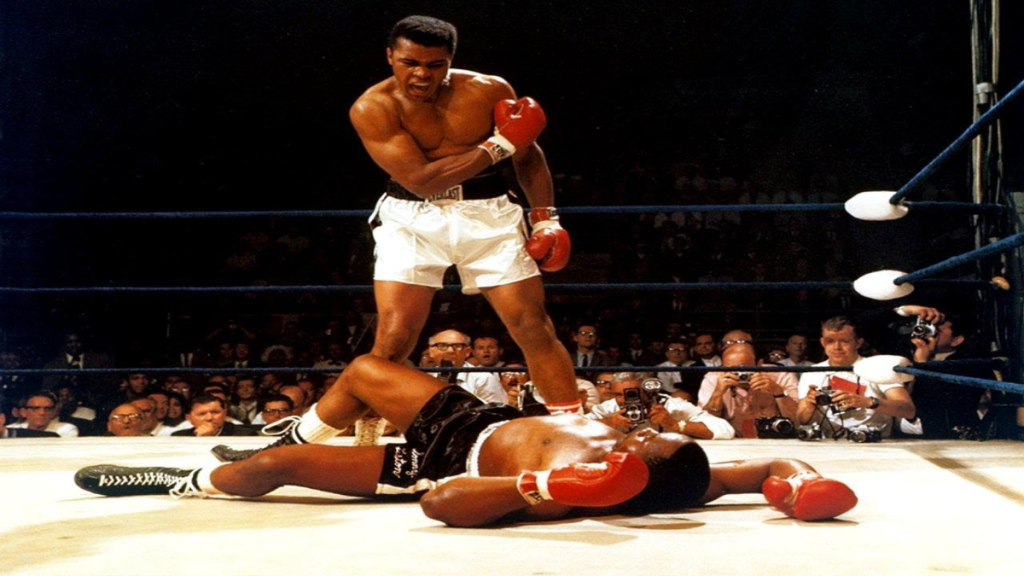
Muhammad Ali Defeated A Lot Of Opponents. He Cannot, However, Defeat The Laws Of Supply And Demand.
July 5, 2016
|Basic Economics
Editor's note: This post originally appeared at Forbes. ESPN is reporting there’s outrage among some observers that people are scalping their “free” tickets to Ali’s memorial service in Louisville. Just as there is no such thing as a free lunch, there’s no such thing as a free ticket to a memorial service. ESPN quotes several people who disapprove of the buying and selling, including an Ali family spokesperson who is “disgusted and amazed” by those selling tickets given that “Ali wanted this to be a free event, an event that was open to all.” Unfortunately, it’s an event that

All I Wanted Was Some Skittles
May 30, 2016
|Basic Economics
You know, some Skittles would be really good about now. Lunch was over and I wanted something sweet, Skittles specifically, as I’ve rediscovered a taste for them during my daughter’s last few “go to work with dad” days. I grabbed a dollar and walked over to the bookstore. The Skittles rang up…$1.04. The last few times I’d bought Skittles they had been part of a larger purchase so I hadn’t paid attention to the fact that they are 95 cents plus tax. I only had a dollar. And the tax man was standing between me and my Skittles—and serving as a great illustration of the deadweight loss
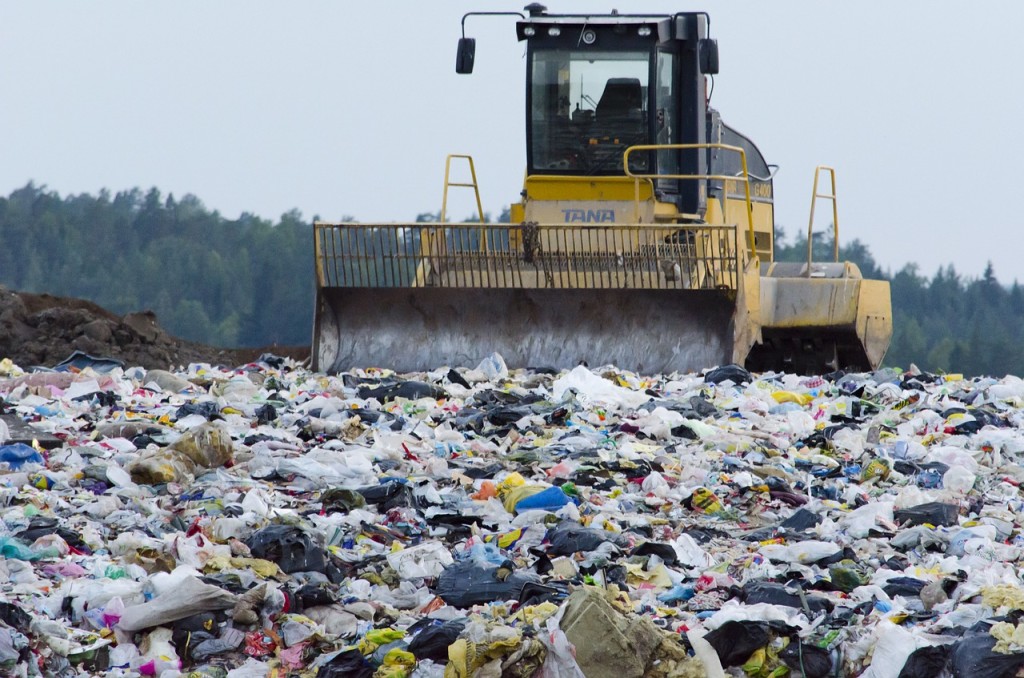
Greener than Thou?
May 23, 2016
|Environmentalism
I have a confession to make. I don't recycle as many people understand the term. I try to reduce and reuse-I "recycle" shirts, towels, dishes, and the like in that I don't discard them after one use, but several years ago I stopped recycling in the sense that I don't put bottles, cans, and newspaper in a separate container that I set next to the curb in front of my house. I throw it all away. What ultimately convinced me was this 2007 EconTalk podcast featuring Duke University economist and political scientist Michael Munger and the accompanying essay titled "Think Globally, Act Irrationally: Recycling." It's

Shouldn’t Big Businesses Just Be Nicer?
May 16, 2016
|Poverty & Inequality
A small group of workers walked out at Walmart on Black Friday 2012, and the company has been for a few decades now a leading emblem of what is supposedly wrong with the modern global economy. Shouldn’t Walmart just be more generous? Not necessarily. First, the managers of corporations are answerable to their shareholders. This is a diverse group that includes not only the very wealthy but also anyone with an IRA, 401k, or 403b. If you own a diversified portfolio of stocks through your retirement investments, it’s a safe bet that you own at least some stock in Walmart, Nike, or another company

Should I Go to Grad School?
May 9, 2016
|Education
Should I go to grad school? I’ve benefited enormously from great advice from friends and mentors like Pete Boettke, Tyler Cowen, Deirdre McCloskey, Mike Munger, John Nye, and many others (here, for example, is the indispensable IHS publication Scaling the Ivory Tower, to which I still refer periodically). If I could go back in time and give four pieces of advice to my collegiate self, I would recommend the following: Start Writing Immediately. Value your time correctly: don’t look at average grad student stipends or wages from a work-study job. Look at the average salaries of full professors
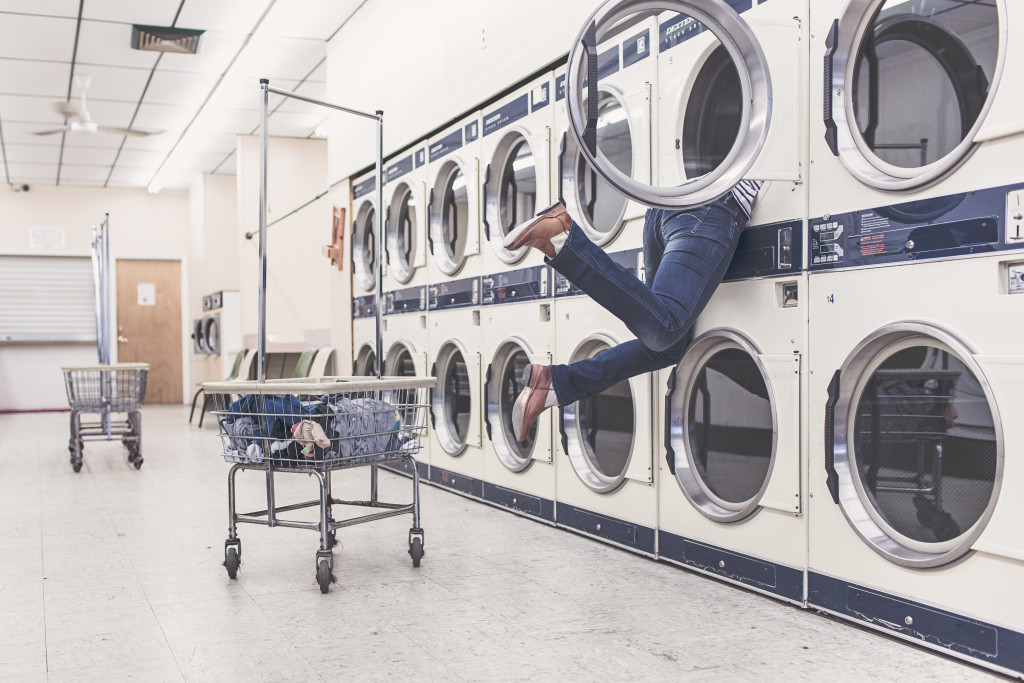
Yes, We Can Get Richer by Doing One Another’s Laundry
May 2, 2016
|Basic Economics
Maybe you’ve heard this slogan: “we can’t get rich doing one another’s laundry.” It’s a sneer at low-skill jobs in the service sector and it is sometimes used to persuade governments to give special privileges to those who practice macho arts like manufacturing lest we be reduced to a nation of shopkeepers, or worse, dry cleaners. It’s a catchy slogan, but it’s wrong. Fortunately, economists have taken this one on. A Google search for the phrase turned up this 2002 article by Russell Roberts in The Freeman. Heck, this mistake inspired Adam Smith to write The Wealth of Nations. Here

How Amazon Turns Trash Into Treasure
April 11, 2016
|Uncategorized
I use a lot of books in my line of work. I can get a lot of them from the library. I use Amazon’s Kindle app to download a lot of books and organize my notes on them. Some books—like F.A. Hayek’s Individualism and Economic Order—are available for $0 download or on a website like EconLib. Some books, alas, aren’t so easy to get, and there are some books I want to mark up—a big no-no with library books. Where, for example, can I get a copy of a relatively obscure and out-of-print academic book our library doesn’t have and that isn’t available for Kindle download? Enter Amazon. I buy

All McDonald's Hamburgers Taste the Same, But You'll Need a Crash Course in Economics to Know Why
March 28, 2016
|Uncategorized
Markets can be regulated by the figurative force of competition or by the literal force of government. Which better protects buyers and sellers? Contrary to popular belief, regulation by competition usually renders regulation by government either unnecessary or counterproductive. Regulations are usually presented to the public as a matter of guarding the public interest and protecting safety; however, one of the curious facts about regulation is that participants in the a particular industry are usually the ones calling for government regulation, not disinterested parties looking out for the social

Will More Immigrants Make Americans Worse Off?
March 14, 2016
|Uncategorized
What do we learn if immigrants lower the wages of American high school dropouts? That we should restrict immigration? No. We shouldn’t. First, if immigrants reduce the wages of high school dropouts, it sends a very clear message: don’t drop out of high school. Indeed, this is how people have responded to competitive pressure from immigrants. In an interview with the Washington Post, economist Michael Clemens points us to research by economist Jennifer Hunt showing that the wage effects of immigration encouraged more Americans to stay in school. This is wise because even Borjas’s long-run

Your City Probably Doesn’t Need a Government-Financed Stadium or Convention Center
February 22, 2016
|Uncategorized
The first time I ever voted, I voted badly: I voted for a plan to use government money to build a soccer stadium and hockey arena in Columbus, Ohio, where I grew up. A few months later, I moved to Tuscaloosa to start college. Along the way, I stopped in Birmingham for a few days and stayed with my Dad: he had taken a job in Birmingham and had been living there for a few months. The rest of the family would follow around Christmas. One day, I read about a proposal to build a domed football stadium in Birmingham. That Fall, I started taking economics classes at Alabama and, over the course of my
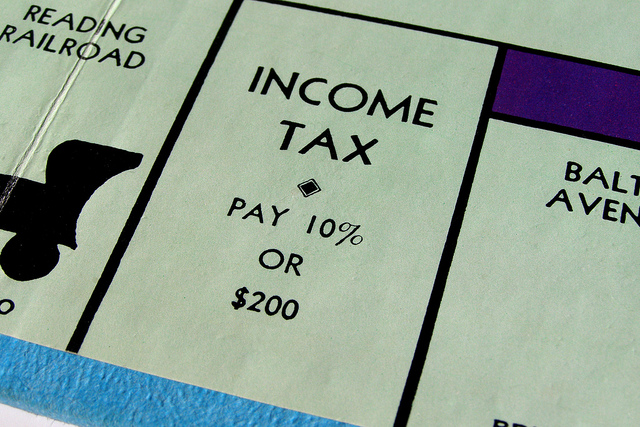
Tax Shield: The Tax man and the Aspiring Minimalist
February 1, 2016
|Uncategorized
Fill in the blank: “He who dies with the most toys _______________.” If you answered “dies,” award yourself full credit. If you answered “wins,” read on and revisit your answer when you’re finished. My wife and I just sold our house in the suburbs and bought a cheaper, smaller house in the city. We’re thrilled about getting rid of a lot of clutter and being able to go places without having to drive. Between now and the beginning of fall semester, we’re waging an all-out war against clutter: material clutter, mental clutter, and the physical “clutter” around my waistline. We’ve

Marijuana Legalization in the United States: What Can We Expect?
January 11, 2016
|War on Drugs
More of the United States are legalizing medical marijuana, and voters in two states—Washington and Colorado—voted to legalize marijuana for recreational use a few years ago. The legalization is subject to certain restrictions, but it is a step toward ending the world’s failed experiment with drug prohibition. Will the US turn into a nation of potheads? No. There might be some very minor drawbacks, but ending prohibition is almost all upside. What can we expect from legalization? In response to lower prices and lighter penalties, there will probably be a small uptick in consumption—but
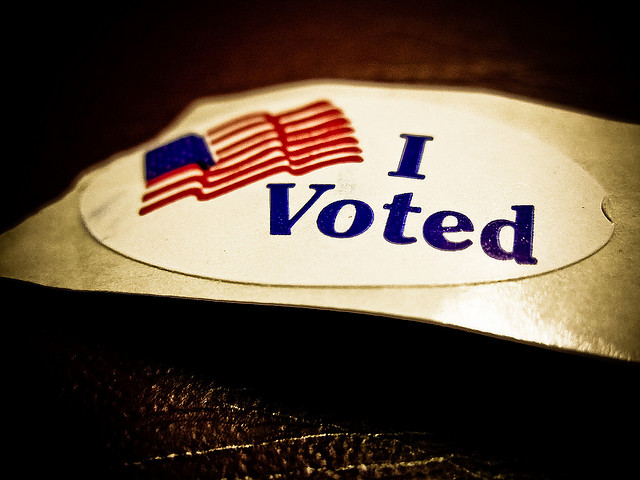
Will You Vote Well?
January 4, 2016
|Voting
What should you read between now and Election Day? If you’re only going to read one political book, you should make it Jason Brennan’s The Ethics of Voting. If you’re going to read a second, I nominate Bryan Caplan’s The Myth of the Rational Voter. If you’re going to read a third, you should read The Ethics of Voting again. Both books make bracing (and important) claims about the revered ceremonies of the American civil religion—namely, elections—and about one of the most important sacraments of the American civil religion—namely, voting. Caplan asks why democratic systems tend

Wait: Why Would a Liquor Store Want to be Forced to Close on Sundays?
December 21, 2015
|Uncategorized
Alcohol laws are some of the most headache-inducing rules on the planet. Recently, AL.com ran an article about Sunday alcohol sales in Alabama with notes about how you can buy alcohol in some places on Sundays, but only (say) for on-premises consumption. Or only if you’re a restaurant or a hotel. Or only for off-premises consumption. Or only if it’s beer or wine. Or only… and further, if you’re buying alcohol in Alabama, you have to do it through the state’s official regulatory body. What explains this crazy-quilt of nonsensical rules? And why on earth would the liquor interests themselves
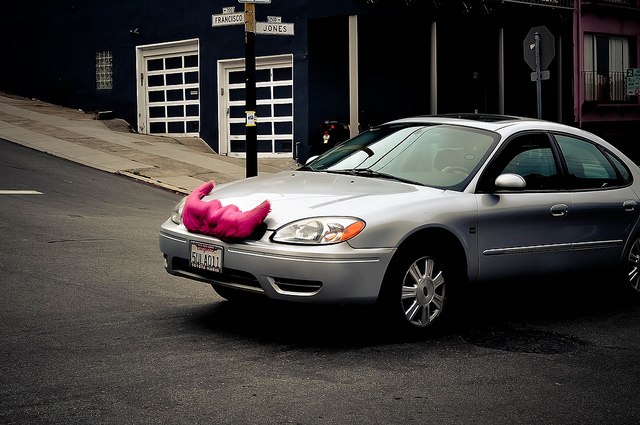
Douglass North and Ridesharing
December 8, 2015
|Uncategorized
In the wake of his passing, I've spent a lot of time reflecting on the contributions of my mentor Douglass C. North (Nobel Prize winner in 1993). In the last few months, I have been thinking especially about how we can understand debates about innovations like "Big Box" retail and ridesharing in light of some of his more recent contributions. In 2009, North and his colleagues John Wallis and Barry Weingast published a book titled Violence and Social Orders: A Conceptual Framework for Interpreting Recorded Human History. North and his coauthors emphasize the importance of open access economic

Bureaucratic vs business management in health care
October 19, 2015
|Economics
The health care debate has been long on hysterics and short on useful analysis. Incendiary and counterproductive rhetoric about socialism, Nazis, and death panels from some corners notwithstanding, critics of socialized medicine raise an important question with uncomfortable answers: in the absence of profits, losses, and prices, how will decisions about the production and allocation of health care be made? Ludwig von Mises offers a telling set of answers in his short, accessible book Bureaucracy, which is available for free download. Lest this be construed as an attempt to answer important

Uber and the sharing economy: a new way of living
October 12, 2015
|Economics
Earlier this year, I was making travel arrangements for a trip to Charleston. I booked my flight and hotel, and was about to book a rental car when I thought “wait a second. Charleston has Uber, doesn’t it?” It does, and I took UberX—the service that allows anyone who meets Uber’s requirements to drive for money, and the service my city of Birmingham’s City Council is on record as saying it’s “what we don’t want”—all over town instead of renting a car. Was I in danger because I was riding in minimally-regulated private cars driven by people who don’t have special licenses,
Liberty, delivered to your inbox!
Want to know more about Student For Liberty’s impact, new initiatives, and other efforts made to advance liberty around the world?
Sign up for our email newsletter to stay connected.
Subscribe Now

